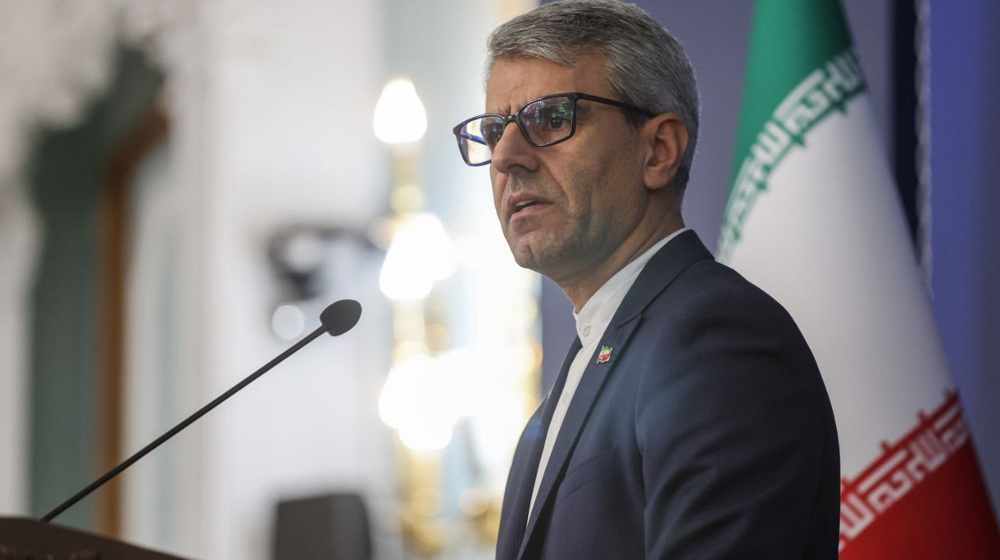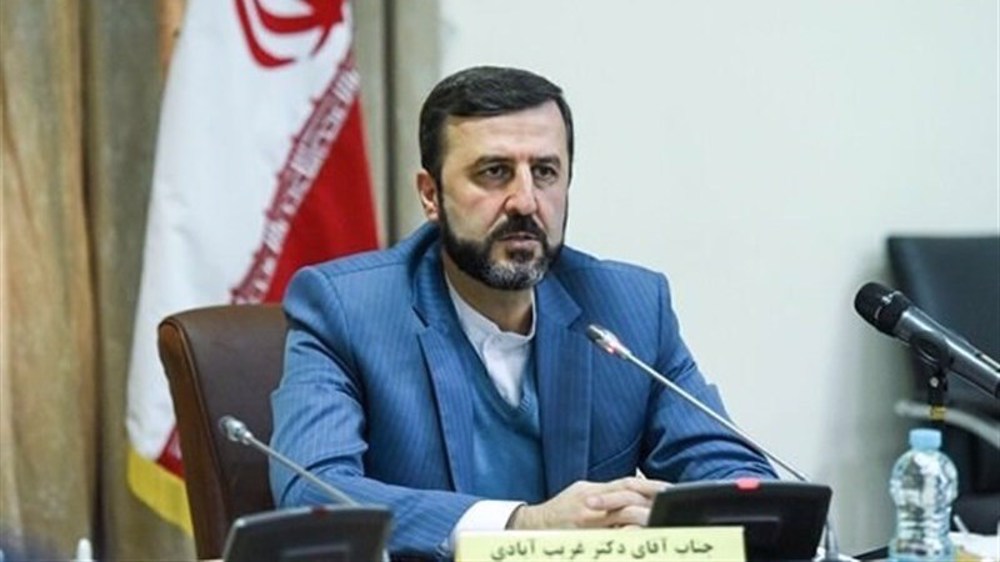Israel wants permanent standoff with Iran: British foreign secretary
Britain's Foreign Secretary Philip Hammond says Israel seeks a "permanent standoff" with Iran, noting that the Tel Aviv regime would not have welcomed any kind of conclusion to the nuclear talks between Iran and the P5+1 group.
“Israel wants a permanent state of standoff and I don't believe that's in the interests of the region, I don't believe it's in our interest,” Hammond told the House of Commons on Wednesday a day after Iran and the P5+1 group -- the United States, Britain, France, China, Russia and Germany -- reached a conclusion on the Joint Comprehensive Plan of Action (JCPOA) in the Austrian capital city of Vienna.
The JCPOA will put limits on Iran’s nuclear program in exchange for the removal of sanctions against the Islamic Republic.
The senior British diplomat made the remarks in response to criticism by opposition lawmaker Ian Austin, who said that the conclusion of the talks between Tehran and the six world powers has "utterly dismayed" Israel.

The Israeli regime has on numerous occasions expressed opposition to the talks between Iran and the P5+1 group and the conclusion of the negotiations over Tehran’s nuclear program.
Addressing the opposition MP, Hammond said, “The question you have to ask yourself is what kind of a deal would have been welcomed in Tel Aviv. The answer of course is that Israel doesn’t want any deal with Iran.”
Hammond also criticized Israeli Prime Minister Benjamin Netanyahu who described the conclusion of talks over Iran’s nuclear program as a "stunning, historic mistake."

"He has made clear that he intends to fight it all the way and that Israel will seek to use its influence in the US Congress to obstruct the progress of the deal," he stated, noting, "I am confident that that action will not succeed.”
Hammond further noted that he plans to take a trip to Israel Wednesday night to speak with the Israeli premier about the conclusion of the nuclear talks.
“I am going tonight to Israel and will have a chance to convey our message about this deal directly to Prime Minister Netanyahu tomorrow,” he said.
Meanwhile, US Ambassador to the UN Samantha Power on Wednesday submitted a draft resolution to the Security Council on the outcome of the nuclear talks between Tehran and the world powers. An unnamed source was quoted by AFP as saying that a vote on the draft resolution, which seeks formal UN endorsement of the outcome of the talks, could come as early as July 20 or 21.
Reopening embassies in Tehran, London
Elsewhere in his remarks in the parliament, the British foreign secretary hoped that the Iranian embassy in London and the British embassy in Tehran will be reopened by the end of the year.
“I very much hope that we will be in a position to reopen our respective embassies before the end of this year, and I look forward to going to Tehran to do so.”
In November 2011, Iranian lawmakers voted by a large majority to downgrade diplomatic ties with the UK in response to its decision to impose sanctions on the Central Bank of Iran over the allegation that Tehran is pursuing non-civilian objectives in its nuclear program.
Nearly two years after their diplomatic ties were severed, Iran and Britain agreed in October 2013 to appoint non-resident chargés d’affaires as a first step toward reopening their respective embassies.
Ultimately, Iran’s bold step to tame unruly inflation beast
‘Maduro abduction has Zionist tint’: Venezuela’s acting-president
Russia, China urge Maduro’s release after US abduction
Recently launched Iranian satellites successfully enter in-orbit testing stage
VIDEO | Protesters in Paris slam Israel’s revocation of NGO licenses in Palestine
Israeli minister lays claim to Gaza, West Bank, calls Palestinians 'temporary guests'
Hamas: US strike on Venezuela, kidnapping of Maduro ‘grave violation of intl. law’
VIDEO | Lebanon commemorates martyrdom anniversary of General Soleimani










 This makes it easy to access the Press TV website
This makes it easy to access the Press TV website